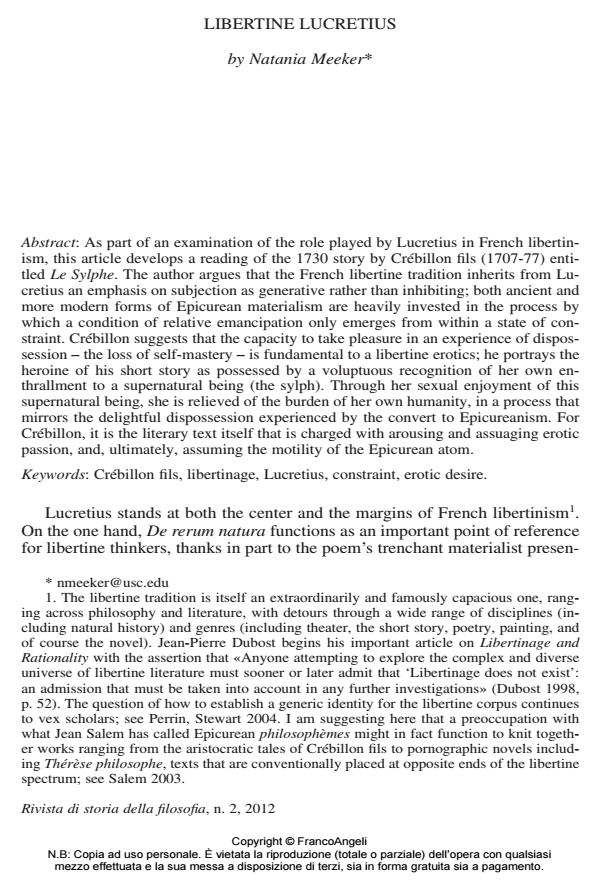Libertine lucretius
Titolo Rivista RIVISTA DI STORIA DELLA FILOSOFIA
Autori/Curatori Natania Meeker
Anno di pubblicazione 2012 Fascicolo 2012/2 Lingua Italiano
Numero pagine 15 P. 225-239 Dimensione file 487 KB
DOI 10.3280/SF2012-002002
Il DOI è il codice a barre della proprietà intellettuale: per saperne di più
clicca qui
Qui sotto puoi vedere in anteprima la prima pagina di questo articolo.
Se questo articolo ti interessa, lo puoi acquistare (e scaricare in formato pdf) seguendo le facili indicazioni per acquistare il download credit. Acquista Download Credits per scaricare questo Articolo in formato PDF

FrancoAngeli è membro della Publishers International Linking Association, Inc (PILA)associazione indipendente e non profit per facilitare (attraverso i servizi tecnologici implementati da CrossRef.org) l’accesso degli studiosi ai contenuti digitali nelle pubblicazioni professionali e scientifiche
As part of an examination of the role played by Lucretius in French libertinism, this article develops a reading of the 1730 story by Crébillon fils (1707-77) entitled Le Sylphe. The author argues that the French libertine tradition inherits from Lucretius an emphasis on subjection as generative rather than inhibiting; both ancient and more modern forms of Epicurean materialism are heavily invested in the process by which a condition of relative emancipation only emerges from within a state of constraint. Crébillon suggests that the capacity to take pleasure in an experience of dispossession - the loss of self-mastery - is fundamental to a libertine erotics; he portrays the heroine of his short story as possessed by a voluptuous recognition of her own enthrallment to a supernatural being (the sylph). Through her sexual enjoyment of this supernatural being, she is relieved of the burden of her own humanity, in a process that mirrors the delightful dispossession experienced by the convert to Epicureanism. For Crébillon, it is the literary text itself that is charged with arousing and assuaging erotic passion, and, ultimately, assuming the motility of the Epicurean atom.;
Keywords:Crébillon fils, libertinage, Lucretius, constraint, erotic desire.
Natania Meeker, Libertine lucretius in "RIVISTA DI STORIA DELLA FILOSOFIA" 2/2012, pp 225-239, DOI: 10.3280/SF2012-002002